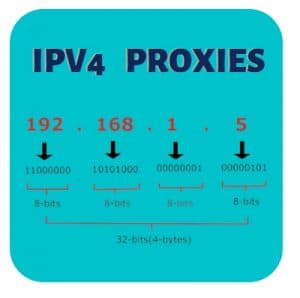Are you looking for the best provider for IPv6 proxies? Then come in now and discover our handpicked providers that offer some of the best IPv6 proxies in the market that you can use for a variety of proxy use cases.
The Internet as we have it today is full of limitations and segregation. You can get blocked from accessing content just because you are not surfing from a supported location. In the same way, there are many activities you would want to carry out that websites you would want to carry out on would not allow you to.
As a marketer or even a regular user of the Internet, this is not only frustrating, it could also stop you from carrying out critical business workflows. A good number of the blocks are possible because of the IP addresses assigned to each device on the Internet which is unique to each device and can be used for tracking a user and his activities. For security and privacy sake, proxies were introduced.
 There are basically two versions of proxies based on the IP version supported – IPv4 and IPv6. Our focus in this article is on the IPv4 proxies which are the most common in the market. In fact, it was only recently that IPv6 proxies made their debut in the market, and even at that, the demand for them is still very low.
There are basically two versions of proxies based on the IP version supported – IPv4 and IPv6. Our focus in this article is on the IPv4 proxies which are the most common in the market. In fact, it was only recently that IPv6 proxies made their debut in the market, and even at that, the demand for them is still very low.
One problem with IPv4 is that because most providers offer them, you can end up with bad IPv4 proxies quickly. That is why this article has been written — to provide you guidance on the best IPv4 proxies to buy in the market.
Recommended Proxy Providers for IPv4 Proxies
As stated earlier, IPv4 proxies are the most common in the market. There are many providers that offer them, cutting across the datacenter, residential, and mobile proxy categories. In this section, we would be recommending for you, some of the best proxy providers you can buy IPv4 proxies from that you can use for your tasks to avoid getting blocked, manage multiple accounts, and access localized data from regions you are not surfing from.
What are IPv4 Proxies?
IPv4 proxies are those proxies that are built to work with the IPv4 protocol. The IPv4 protocol is the most widely used version of the Internet Protocol even though IPv6 is the most recent and comes with better features.
It is important I stress here that proxies do not need to be labeled IPv4 proxies before you see them as one. This is because IPv4 proxies are the de facto proxies and as such, most providers do not even label their proxies such. It is the IPv6 proxies that need labeling. Most software in use today works only with IPv4 proxies.
Should I use IPv4 Proxies or IPv6 Proxies?
The proxies you end up using would be determined by the version of IP your software requirements. Even though both IPv4 and IPv6 can work within the same system, they are not designed to be compatible by default.
This means that if the network application you need proxies for is IPv4 then you can’t use IPv6 for it and the same goes the other way round. However, most software including the ones you would develop yourself would require IPv4 proxies except if you develop it from the ground up to work with IPv6 proxies.
Why is IPv4 Proxies More Expensive?
A quick look at the pricing of IPv4 and IPv6 would reveal to you that IPv4 proxies are more expensive even if they are sold by the same provider. This is not unconnected to the fact that the demand for IPv4 proxies is very high while supply is highly limited. On the other hand, there is an abundance of IPv6 IP addresses with low demand for them.





























